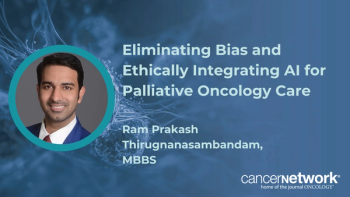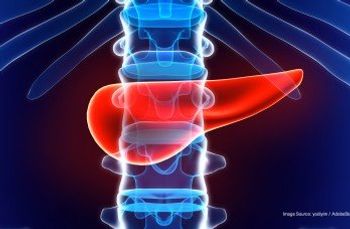
Evaluating Scholastic Performance in Brain Cancer Survivors Following RT
Raymond B. Mailhot, MD, MPH, discussed methods for comparing academic performances of patients following radiation therapy with healthy control groups.
The University of Florida was the first institution to directly link the medical data of patients with brain tumors undergoing radiation therapy with academic performance, according to Raymond B. Mailhot, MD, MPH.
CancerNetwork® spoke with Mailhot, an associate professor in the Department of Radiation Oncology at the University of Florida College of Medicine, about what the current data shows on how the academic performance of patients with brain tumors having undergone radiation therapy compares with the average scholastic performance of the general population. Study findings were presented at the
Mailhot began by stating that his lab was the first to test this comparison before citing previous survey data that attempted to answer the question of how academic performance among this patient group compares with the general population, which may have been subject to biases and limitations.
He further outlined Florida state achievement levels, which are used to assess a child’s academic performance and determine whether they are ready for grade promotion. Mailhot then explained how the scholastic performances of brain cancer survivors who had undergone radiation were compared with those of a healthy control group. The trial design matched patients 1:3 with those in the healthy control group, stratifying them by age, grade, district, and free or reduced lunch eligibility—a metric used to determine socio-economic status—among other criteria.
Mailhot concluded by explaining that those in the patient group were significantly disadvantaged, as they were found to be twice as likely to be held back and to have an unsatisfactory value on a Florida state mandated test for math.
Transcript:
This is an area where our lab was the first to demonstrate this [comparison] in the United States. Prior work had relied on surveys. A good example is something called the Childhood Cancer Survivor Study, which evaluated a number of different survivorship end points about childhood cancer survivors. The way it did it was by sending surveys to either the patients themselves or their parents. That kind of methodology is going to be [prone] to certain types of biases or certain limitations.
If your child was treated a couple years ago, you might not remember exactly what [happened], whereas the state is going to [be] record keepers of those data because a goal of the Department of Education is almost to act as an institution that confers diplomas, so it has to make sure that a child is on track. These data, therefore, are, in and of itself, meaningful.
In the state of Florida, there is something called an achievement level, which is an ordinal scale from 1 through 5 that a child can receive when they test in math or English. If a third grader gets a 1 or 2, they will not get promoted to the next grade. If an eleventh grader does not fully pass the state-mandated test, they cannot graduate with a standard diploma.
We are the first group [to have done this] in the United States to our knowledge. I can send citations that have done systematic reviews to directly link—let us say John Doe’s—medical data of the type of treatments [or radiation] they received, to how John necessarily performed in elementary school, middle school, and high school. We can track along with the grades they received and the test scores that they had, as well some other socio-demographic factors.
Another interesting thing about this methodology is that working with the [Florida] State Department of Education, we were able to create a group of healthy controls whereby these children were matched at a 3:1 ratio to other children who [were] the same age, grade, district, and [whether] they were eligible for free or reduced [cost] lunch. That eligibility is a socio-economic status metric because, in general, free or reduced [cost] lunch is based on someone's income.
When comparing those survivors to their healthy controls, we saw that survivors were twice as likely to be held back. [In other words, they did] not receive a standard grade promotion, and they were twice as likely to perform poorly, meaning unsatisfactory with a value of 1 or 2, on the Florida state-mandated test for math.
Reference
Mailhot Vega R, Indelicato DJ, Bradley JA, et al. Establishing the association between OAR dose and post-therapy scholastic performance in pediatric brain tumor survivors. Presented at: ASTRO 2024 Annual Meeting. September 29-October 2, 2024. Washington, DC. Abstract 172
Newsletter
Stay up to date on recent advances in the multidisciplinary approach to cancer.











































